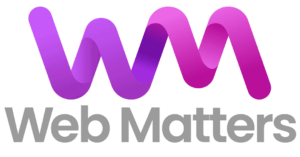A slow loading website is detrimental to your business and will result in a high bounce rate for your web pages. As WordPress can do a lot – and there’s a temptation to add everything to it, there’s a high chance that your site will slow down over time, especially if you are uploading large images from your phone and using budget web hosting.

Here are the main reasons why your WordPress website could be slow.
Budget Hosting: You Get What You Pay For
While that $2.99/month hosting plan might seem like a steal, but it could impact your site speed. Budget hosts often:
- Overload servers with too many websites
- Use outdated hardware
- Skimp on crucial performance features
Solution: Invest in quality hosting. Look for managed WordPress hosts or VPS options that offer better resources and WordPress-specific optimizations.
Oversized Images: A Weighty Problem
High-resolution images look great, but they can seriously slow down your site. Many WordPress users upload photos straight from their cameras without optimization.
Solution:
- Resize images before uploading
- Use image compression plugins
- Consider lazy loading for images below the fold
Plugin Overload: Too Many Plugins
Plugins extend WordPress functionality, but each adds code that must be loaded. An excessive number of plugins can significantly impact load times.
Solution:
- Regularly audit your plugins
- Remove any that aren’t essential
- Look for lightweight alternatives to heavy plugins
External Scripts: Third-Party Slowdown
Analytics, ads, and social media widgets often require external JavaScript files. These can slow down your site, especially if the third-party server is slow to respond.
Solution:
- Minimise the use of external scripts
- Use async or defer attributes when adding scripts
- Consider using tag manager solutions to streamline script loading
Neglecting Caching: Missing Speed Boosts
Caching creates static versions of your dynamic content, reducing the load on your server and speeding up page delivery.
Solution:
- Install a caching plugin like W3 Total Cache or WP Super Cache
- Implement browser caching
- Consider using an object cache for database-heavy sites
Ignoring CDNs: Distant Server Issues
If your server is in New York, but your visitor is in Tokyo, that physical distance can lead to slower load times.
Solution:
- Implement a Content Delivery Network (CDN)
- Popular options include Cloudflare, or Bunny CDN
Bloated Databases: Digital Clutter
Over time, WordPress databases can accumulate unnecessary data like post revisions, spam comments, and orphaned metadata.
Solution:
- Regularly clean your database using plugins like WP-Optimize
- Optimize your database tables
- Consider using a database cleanup schedule
Unoptimised Theme Code: Beauty at a Cost
Some WordPress themes, especially those packed with features, can be poorly coded and resource intensive.
Solution:
- Choose lightweight, well-coded themes
- Consider a minimalist theme and add functionality through carefully chosen plugins
- If using a page builder, ensure its optimised for performance
Failing to Minify and Combine Files
Multiple CSS and JavaScript files mean multiple HTTP requests, slowing down your site.
Solution:
- Use minification to reduce file sizes
- Combine multiple CSS and JavaScript files
Outdated WordPress Core, Themes, or Plugins
Running outdated software can lead to compatibility issues and missed performance improvements.
Solution:
- Keep WordPress core, themes, and plugins updated
- Use a staging site to test updates before applying to your live site
Addressing these common issues can significantly improve your WordPress site’s performance. Remember, a faster website provides a better user experience and can improve your search engine rankings and conversion rates. Contact Web Matters if you’d like help optimising your site’s speed and performance.

